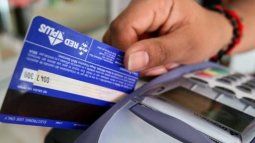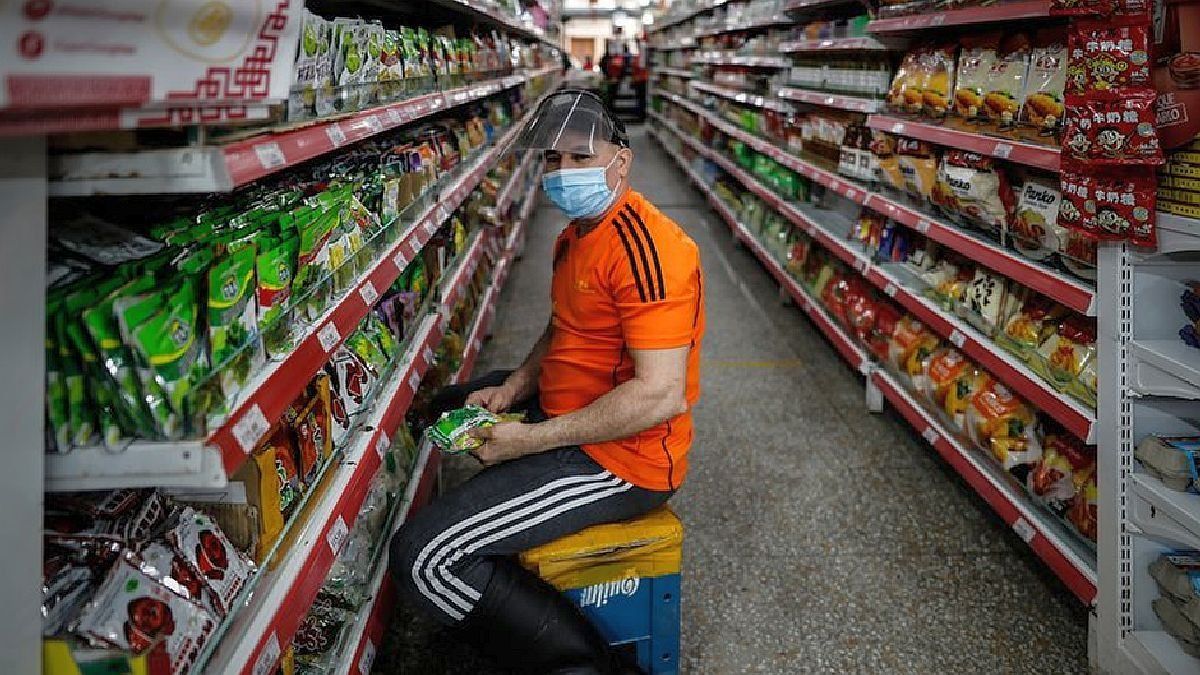The measure, which will take effect from Monday, stipulates the return of up to $18,800 per month for workers, retirees and beneficiaries of the AUH. They point out that it will help contain the decline in consumption.
The extent announced by the Minister of Economy, Sergio Massa, of refund VAT to retirees and workers was well received by supermarkets and grocersthe main establishments in which the Government trusts that the positive impact will be seen in terms of sales starting next Monday.
The content you want to access is exclusive to subscribers.
Even though the measure aimed at recovering purchasing power was announced this Wednesday, it will only be published next week in the Official Gazette with the details of the refund. However, the businesses where the benefit will be applied project a favorable outlook compared to the discouraging numbers regarding the level of consumption and price increases. It is the case of Juan Vasco Martínezexecutive director of the Association of United Supermarkets (ASU): “Any initiative that stimulates consumption it seems auspicious to usand much more when, as in this case, it encourages formal tradebecause it ‘formalizes’ purchases made in other channels that traditionally transit totally or partially through informality.”


Fernando Savore, president of the federation of grocers of the Province of Buenos Aires, highlights the refund of the tax, considering the sharp rise in prices in August, with statistical carryover for September. “We went through a tragic month, where merchandise practically had an increase of between 25% and 30%. What yesterday cost $750, today sells for $900, $950. So, obviously these price jumps make each worker’s money lose value. This is oxygen. If a couple can be returned $18,000, then between the two of them it would be $36,000, it is interesting,” said the merchant.
The impact of the measure is concentrated in the recovery of purchases of basic basket products, that is, food and personal and household hygiene items. Food and non-alcoholic beverages rose 15.6%, more than three points above general inflation, which was 12.4% in August. Cuts of meat such as shoulder, roast, minced meat, rump and buttock shot up more than 30% in a single month, as a result of the devaluation and lack of supply. In addition, potatoes increased 28%; the round tomato, 31%; and eggs, 18%. September does not see a more encouraging outlook: according to the consulting firm LCG, in the first week of this month the increase in food and beverages was 1.6%, although slowing down by 0.3 percentage points compared to the previous week.
In this context, for Darío Sánchez, from the Federal SME Confederation of Argentina, the 21% refund is an “excellent measure” because “it allows vital consumption to be directed to businesses and SMEs.” Sánchez assures that sales “suffered a decline in August due to the devaluation imposed by the IMF, and the concentrated groups of the production of the basic food basket.” However, estimates that this month “inflation will slow down and purchases will increase” after Massa’s disposition.
The latest data linked to the consumption They are positive, but prior to the 22% devaluation of the official exchange rate. For July, the consulting firm Scentia revealed that, in the case of large chains, consumption grew both in the AMBA (2.8%) and in the provinces (4.2%). Meanwhile, the decline in consumption in neighborhood businesses is explained exclusively by what happened in AMBA, where sales collapsed by 17.1%. On the contrary, an improvement of 5.7% was noted in the provinces.
The VAT refund has a monthly limit of $18,800 and is taken into account by a consumer who has a debit card, as long as he or she is a retiree who earns up to six minimum wages, a registered worker who earns up to $708,000, a pure monotributist, and a beneficiary of the universal child allowance. (AUH) or private home worker.
The measure can be applied to purchases in supermarkets, grocery stores, butcher shops, pharmacies and kiosks. Regarding this last item, Nestor Palaciosvice president of the Union of Kiosks from Argentina, highlighted that this month alone some candy companies “increased between 10% and 13%.” “We hope for the reactivation of domestic consumption,” Palacios asked. Lastly, since the chinese supermarketsalso showed agreement in dialogue with Ámbito: “It is an important incentive,” he said Yolanda Duranpresident of the Southeast Asian Chamber of Supermarkets, who pointed out that these businesses show a 20% increase in units sold compared to a year ago.
Source: Ambito




